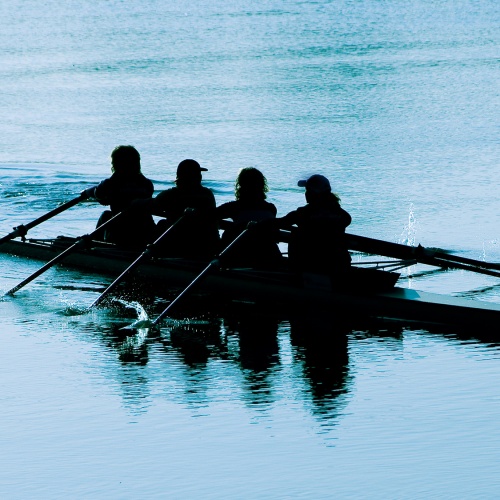Rugby has always been a game of power, speed, strength and stamina. Today, even at amateur level, it’s played faster and harder than ever before. The forces acting on the body during tackles, rucks, mauls and lineouts, and the requirements of the body to deal with these forces continuously over the course of a season are demanding to say the least.
Unsurprisingly, injuries are more frequent – on average, a club can expect to have up to 1 in 5 players injured at any one time.
A large proportion of those injuries can be attributed to a discrepancy in the working of two different sets of muscles; global and local.
Global muscles are extremely important for rugby players as they are large muscles purpose-built for generating speed and power (think hamstrings, quads, chest and arm muscles) and they respond well to the traditional forms of strength training employed by most rugby teams.
Local muscles are small, usually attaching directly to the spine (think muscles at the base of skull, between the shoulder blades and underneath the visible ‘6 pack’ abs) and are purpose built to produce low levels of force for a long period of time. This provides a long lasting stability for the spine and joints of the body.
These muscles are often neglected by traditional forms of strength training, and as a result, they weaken, the nerves that supply them become increasingly inactive, and they stop working correctly.
However the body still requires the spine and joints to be stable– especially considering the amount of force acting on the body in a game of rugby; the muscle energy needed to provide this support now has to come from the global muscles. And if they’re having to provide stability as well as the force to move, this dual role reduces the power they’re able to generate and increases the propensity to injury.
The solution is to retrain both sets of muscle groups to work efficiently and effectively together as a unit. Which is exactly what Ten’s Dynamic Reformer Pilates programme does. It bridges the gap between traditional Pilates (not the most compelling discipline for the average rugby player) and circuit/weight training, and combines the best aspects of each form of exercise.
Dynamic Reformer Pilates also combines highly focused Pilates moves designed to activate and strengthen local muscle systems, with dynamic functional movements for the global muscles (think squats and lunges using weights). All performed under expert supervision on a state of the art Pilates reformer machine to improve core stability and flexibility, typically problem areas for rugby players.
The end result for rugby players is a retraining of local muscle groups to provide the necessary support and stability for the body, whilst easing the pressure – and improving the primary function – of the global muscle system, enabling them to focus on producing speed and power which in turn leads to greater overall strength and performance.
Adam Kwasnicki, physiotherapist and professional rugby player, currently playing in the Championship for London Scottish, is clear about the benefits:
“From my experience as both a professional rugby player and physio, the majority of rugby players are lacking in both functional flexibility and core stability. The Ten workout can categorically improve both of these in a controlled environment, and is a must for any player wanting to drastically improve performance and reduce injury risk.”
“Anyone who thinks Pilates is for girls has never tried Ten” grins Declan Danaher, Defence Coach at London Irish, “but whatever your level, it means better speed and power on the pitch and less time spent off it due to injury.”
If you’re a rugby player and new to Ten you can try your first class for just £15. If you’d like to bring your team mates with you, get in touch with one of our Studios and we’d be happy to arrange a private session.







